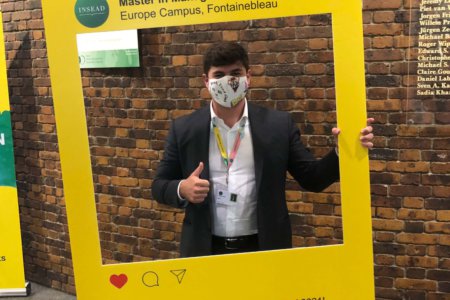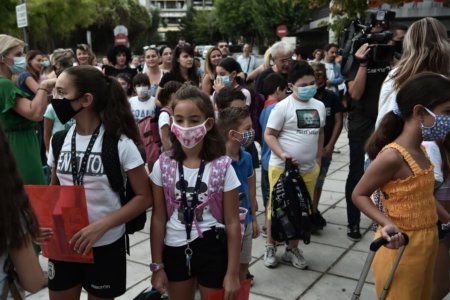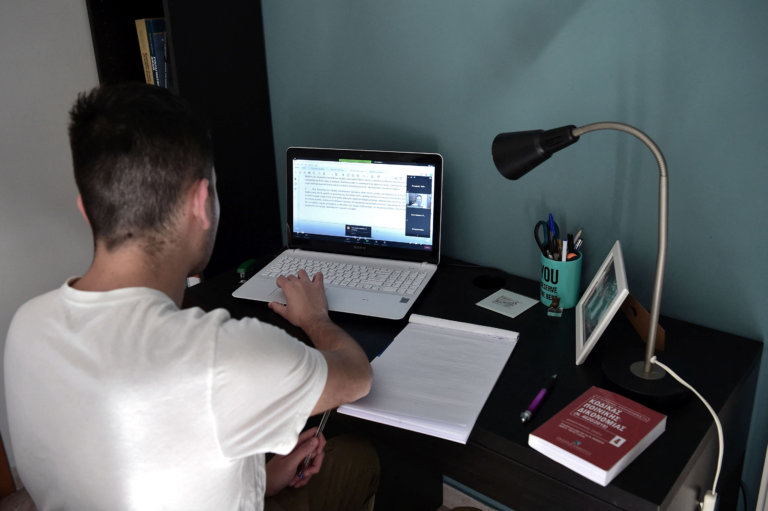
Shuttered for over a year because of the COVID-19 pandemic, Greek universities are now grappling with a surge in online exam cheating giving rise to a new reality: the “corona degree.” Both professors and students candidly admit that examination safeguards are practically impossible to enforce in a remote-learning environment with hundreds of participants simultaneously online.
“In jest, we call the degrees to be awarded this season ‘corona degrees’,” says John Mylopoulos, a professor of environmental engineering and former rector of Thessaloniki’s Aristotelio University. “Remote learning is supposed to be a supplementary education tool. When it completely subsumes teaching, problems begin,” he told AFP.
Sofia, a 20-year-old psychology student at Aristotelio, says that “last summer, I took two exams on behalf of two of my friends and nobody realised.” “I logged in using their computers and personal registration codes. There was no requirement for an open camera during the exam. My two friends received a nearly perfect score without opening a book,” she told AFP. Many professors have been surprised to see even long-term students who haven’t set foot in a university campus for years scoring high results.
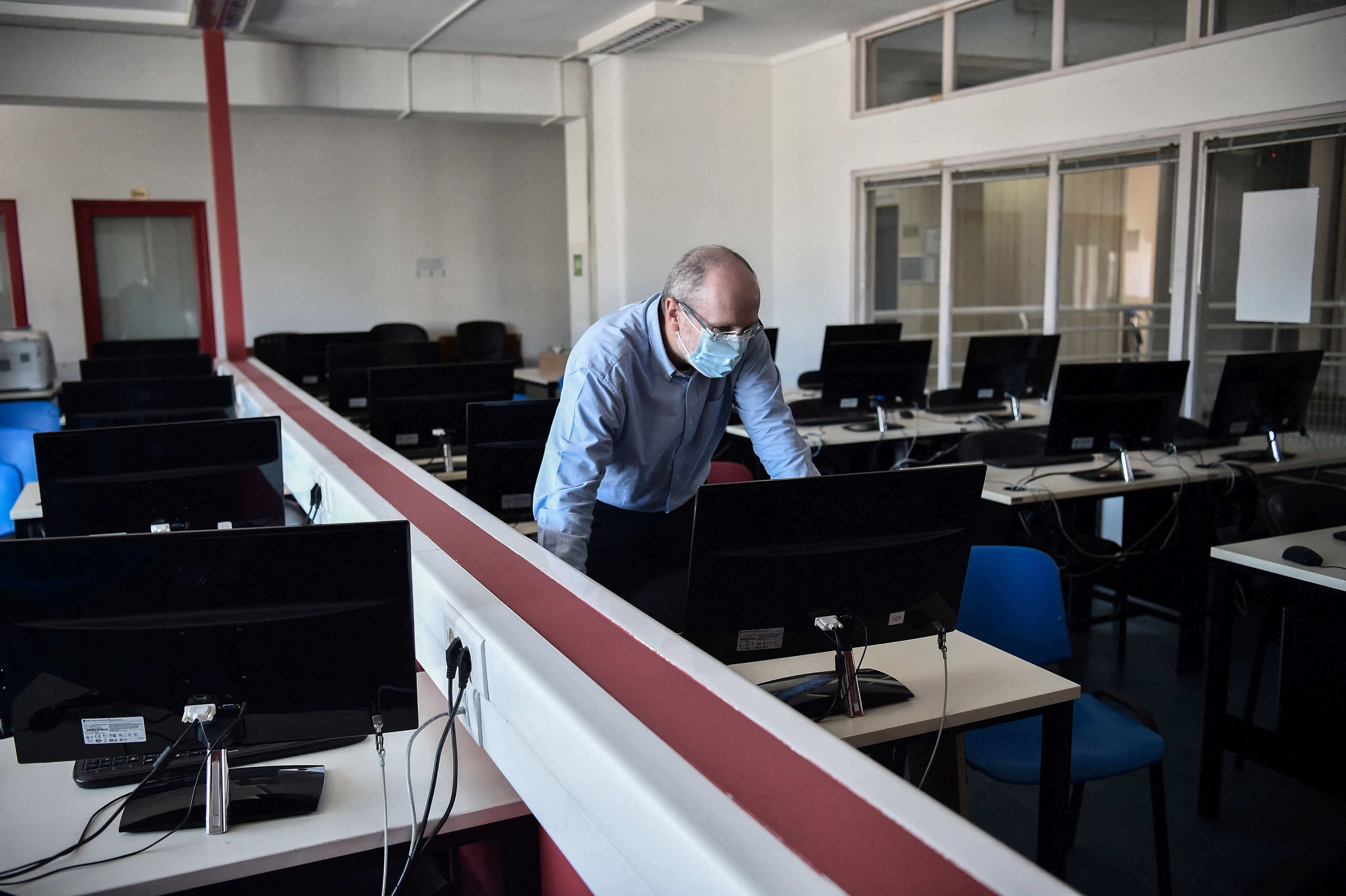
Alexandros Chatzigeorgiou, Dean and Professor of the Department of Applied Informatics poses is seen in a classroom in the University of Macedonia, in Thessaloniki. Source: Sakis Mitrolidis/AFP
‘Easy to cheat’
“Result averages are up, and people we haven’t seen in years are showing up for exams because the system makes it easy to cheat,” says Kostas Kosmatos, an assistant professor of criminology at Thrace’s Democritus University. Kosmatos notes that only an open-camera examination can help restore transparency to the procedure. “But it’s impossible to do that with up to 500 people taking part in an exam,” he says.
“So we break down the participants in groups, assigning different subjects to each team. We also try to limit the time available for answers. But even so, we cannot effectively address the problem,” he adds. Alexandros Hatzigeorgiou, a professor of information technology at Thessaloniki’s Macedonia University, warns that even personalised exam passwords are not a complete safeguard.
“We have no way of verifying that the person logging in is the actual student,” he says. “And the camera could be showing someone else taking the exam in their stead.” Some students have already figured out counter-measures to overcome nearly any impediment to cheating.
Exam cheating: ‘Paraphrased Wikipedia answers’
“Groups have formed on Messenger, Discord and other platforms,” says Costas, a 22-year-old Aristotelio University student. “Using split screens, the correct answers are shared out in real time during an exam without (overseers) realising, regardless of whether the camera is on or not,” he says.
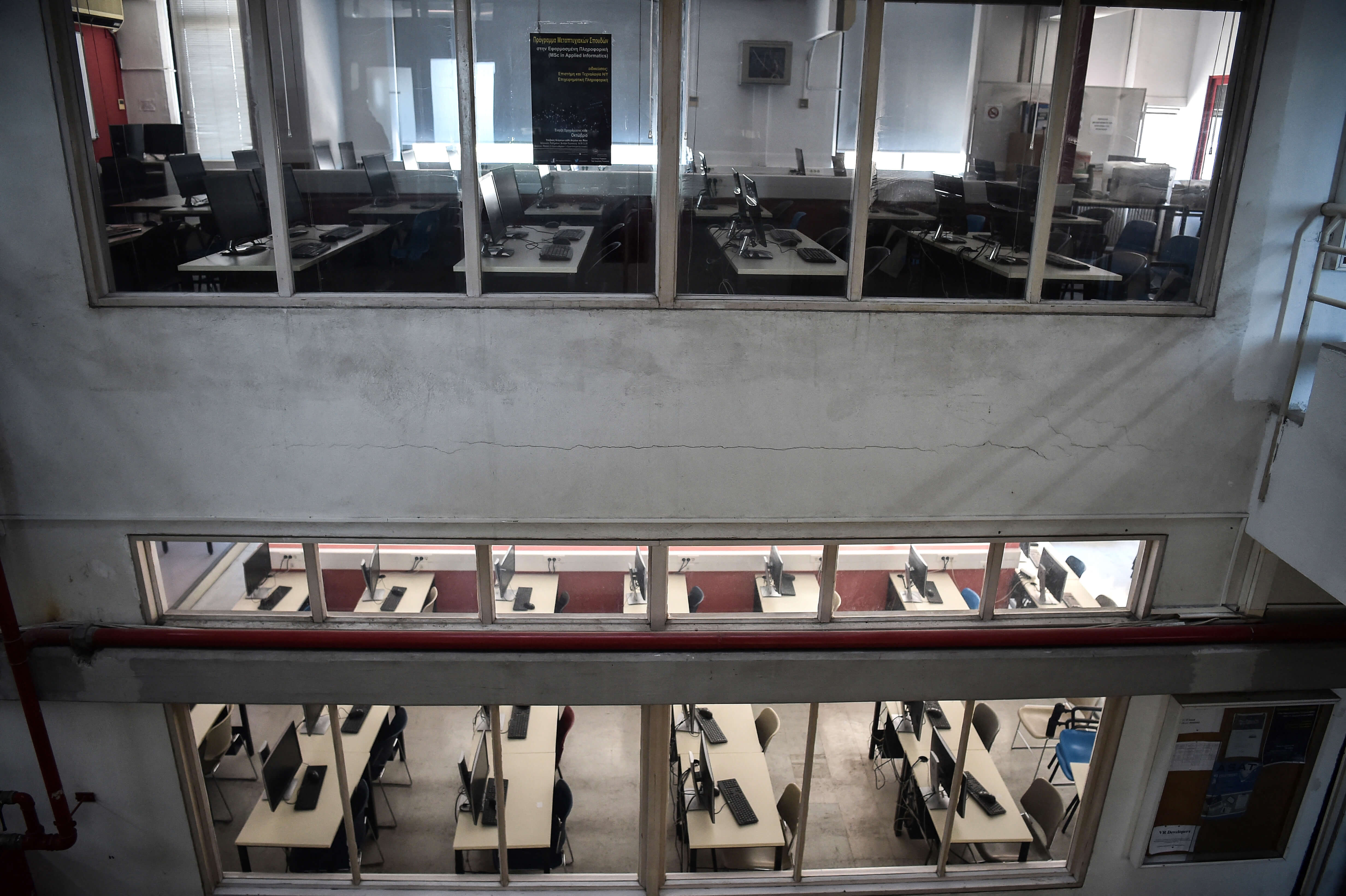
This picture shows empty classrooms in the University of Macedonia in Thessaloniki. Source: Sakis Mitrolidis/AFP
Angela Kastrinaki, dean of the University of Crete’s literature department, says it is easy for students to Google exam answers even under the eye of supervisors on camera. “We get paraphrased Wikipedia answers,” she notes. Some of her students even enlisted a respected specialist in linguistic history to help crack an exam question that was not available online.
“But even he got a verse wrong, so I got 50 papers with the same mistake. It was funny,” says Kastrinaki. Overall, she found 100 students had employed some form of cheating that day. Natassa, a 20-year-old student at the University of Ioannina, recalls that one of her friends gave 100 euros (US$120) to a teacher to sit her mathematics exam for her.
“In the end, she did not get a particularly good grade,” she laughs. Panagiotis, a final year law student at Aristotelio University, says “the system at times is so compromised that even star students are tempted to cheat.”









